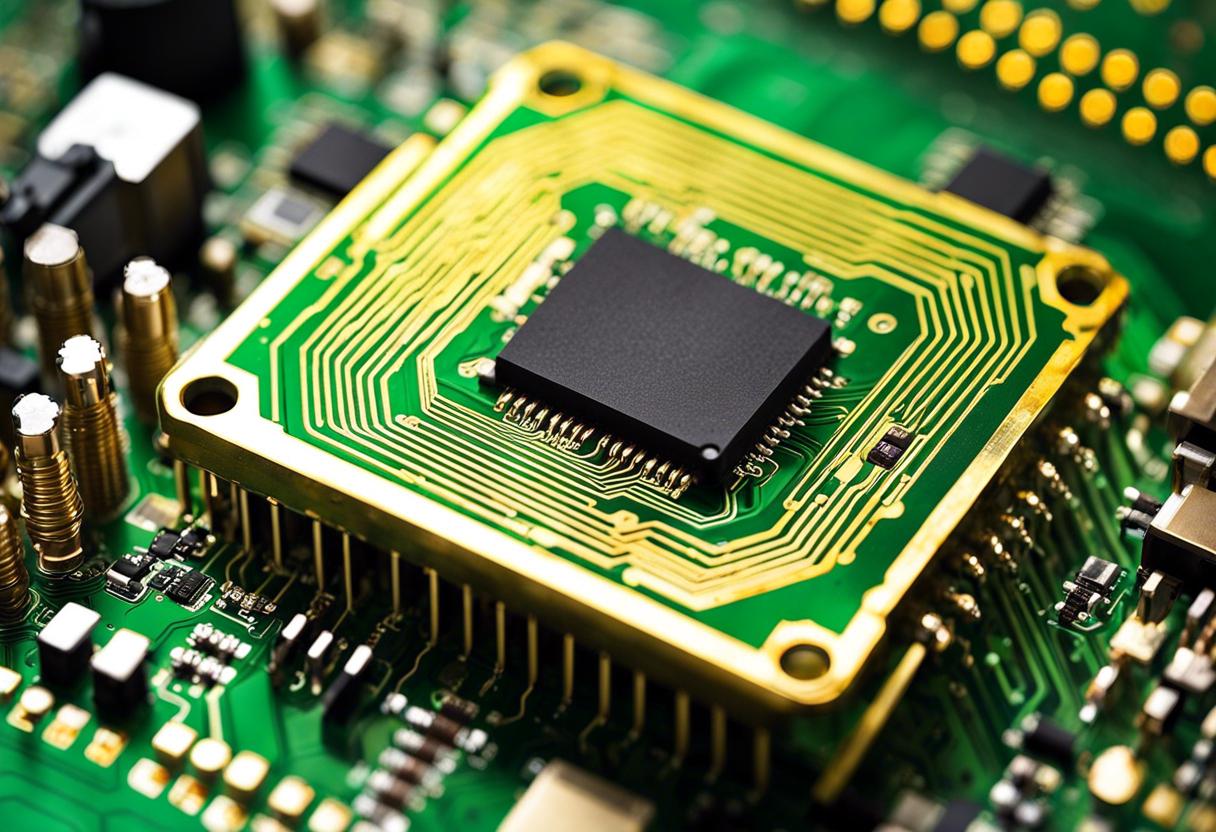This week, the US technology behemoth Nvidia made headlines as the world’s third largest corporation by market value, despite not being a household name yet. Many predict a rise in the company’s recognition should it surpass Microsoft and Apple in value, especially as the relevance of artificial intelligence (AI) continue to grow.
During the Nvidia GPU technology conference in San Jose, California, the company’s co-founder and CEO Jensen Huang, known for his signature motorcycle jacket, introduced a new “superchip”. This conference is often termed the “Woodstock festival of AI” by Bank of America analysts.
Huang aims to diversify Nvidia’s dominance in the chip industry via a new processor design named Blackwell. This design, which is significantly faster in handling AI-related models, is named in memory of David Blackwell, a notable US statistician and mathematician. These chips are anticipated to form the foundation of new computers and various products utilised by the biggest operators of data centres across the globe, including Amazon, Microsoft, and Google.
“AI’s potential across all industries will be harnessed”, promised Huang.
Additionally, this week also marked a recognition of the American Asbestos issue. A nationally enforced prohibition of asbestos in Ireland has been in place for 25 years. Asbestos, identified as a group of naturally strong mineral fibres once used in countless products from insulation to paint, is known to cause cancer.
It’s been 19 years since the complete ban on the last legally accepted type of asbestos, known as ‘white asbestos’, was issued across the EU. This followed the earlier ban of five other types in 1991. Health risks related to asbestos were first identified in the 1890s.
The US Environmental Protection Agency disclosed a ban on white asbestos, linked to approximately 40,000 US deaths annually from various types of cancers including lung cancer and mesothelioma, for the year 2024. This move had been previously attempted in 1989, but dismissed by a federal court. A time frame of 12 years is given to manufacturers to gradually eliminate the use of this carcinogenic substance.
In other news, Redbird IMI has been gaining interest recently.
Certain partnerships often spark more debate than others. One such example is Redbird IMI, a collaborative operation between RedBirdCapital, a private equity corporation from the US, and International Media Investments, supported by Sheikh Mansour bin Zayed al-Nahyan, UAE’s vice-president. The latter firm, based out of Abu Dhabi, has recently been identified striving for the acquisition of the Telegraph and the Spectator. This move didn’t sit well with UK’s political powers entrenched in Westminster, culminating in the state intervening last week. The British government presented a new legislation that would effectively serve to constrain the foreign state possession of news magazines or newspapers hailing from the UK.
The principal executive of Redbird IMI, earlier President at CNN, Jeff Zucker, was eager about this venture. However, Downing Street considered the situation differently. Whilst it was acceptable for Sheikh Mansour to be the proprietor of Manchester City FC, it was deemed inappropriate for him to govern over a well-known daily newspaper. Hence, the proposed deal ended up being scuttled.
Notwithstanding this development, Redbird IMI remains proactive, seizing opportunities in less vulnerable media sectors that exist elsewhere.
In other news, Unilever, a global consumer goods behemoth, has declared its aspirations to split its enormous ice-cream enterprise, with annual turnovers of €7.9 billion, into an autonomous firm. The goal: to manifest a Unilever that is not just “simpler and more targeted”, but is also less susceptible to being “liquified”. Which household regulars does it produce?
Firstly, ‘HB’, Unilever’s long-standing ice-cream brand in Ireland, brought to life in 1926. It falls under the umbrella of the ‘Heartbrand’ label. However, ‘HB’ doesn’t represent ‘Heartbrand’, it refers to its creators, the Hughes Brothers, and their farm based in Rathfarnham, named Hazelbrook.
Secondly, ‘Ben & Jerry’s’, a ‘peace, love and ice-cream’ mark and a purchase made in 2000. It has an independent governing body and attempted to stop sales in regions of the West Bank under Israeli control in 2022. This eventually led to a legal wrangle with the parent company.
Lastly, ‘Calippo’, a ‘lower-calorie’ water-based ice lolly forming part of the ‘Heartbrand’ product range. To date, it has neither been implicated in nor expressed any views on any geopolitical turmoils.
4. Magnum: With the tagline of “the ultimate experience for pure pleasure seekers”, Unilever’s leading ice-cream franchise, Magnum, appears to challenge your indulgence.
5. Cornetto: The well-liked coated waffle cones, filled to the brim with yummy ice-cream, originate from Italy. Despite being a treat in their own right, it’s hard not to mention their infectiously memorable decade-length advertising jingle, “Just one Cornetto / Give it to me / Delicious ice-cream / Of Italy”, which truly defined them as a classic.

